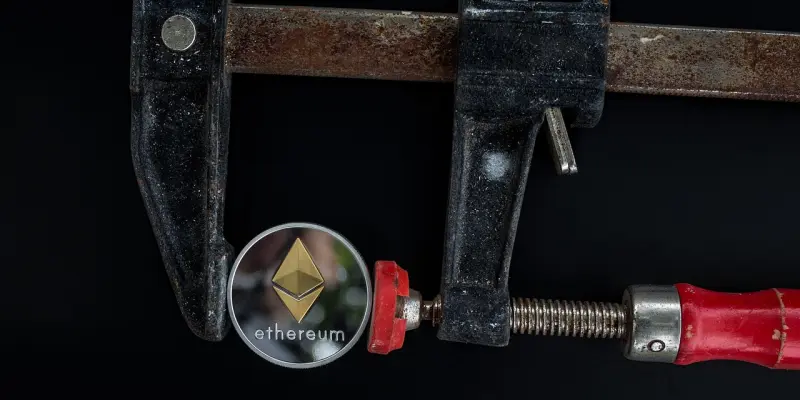Ethereum’s highly anticipated Pectra upgrade, aimed to enhance the scalability, security, and usability of the network, faced significant challenges upon its launch on the Holesky testnet on February 25. The initial excitement surrounding the upgrade quickly turned to concern as developers and participants observed that transaction finalization was delayed, causing network disruptions. One of the primary issues identified was that network slots remained unfinalized, effectively preventing irreversible transactions from occurring. This delay caused a ripple effect of uncertainty and confusion within the network, igniting discussions about the stability and reliability of the upgrade framework.
Raul Riesco, a renowned security expert, played a pivotal role in identifying the root of the issue, pointing to an error in the smart contract address as the primary culprit. Riesco highlighted that the mistake was in specifying the correct address for Pectra Request Hash Calculations, which proved to be a significant bottleneck. As developers scramble to address the disruption, there is a looming concern over potential delays. If the issues on the Holesky testnet are not resolved in a timely manner, it could impede the scheduled deployment of the Pectra upgrade on the Sepolia testnet initially set for March 5. This, in turn, could lead to further delays that may affect the Ethereum mainnet activation projected for April.
Addressing Network Disruptions on Holesky
Developers are diligently working to mitigate the disruptions caused by the Pectra upgrade on Holesky, with a significant focus on ensuring that the network can finalize transactions reliably. The primary aim is to fix the error in the smart contract address to restore network functionality. This process involves rigorous testing and validation to ensure that similar issues do not arise when the Pectra upgrade is eventually deployed on the Sepolia testnet. The developers’ efforts are directed towards ensuring that the transition is seamless and does not compromise the network’s usability, scalability, or security.
The challenges faced during the Holesky testnet upgrade are reminiscent of previous issues encountered during the Dencun upgrade on the Goerli testnet in January 2024. Similar to the current situation, the Dencun upgrade faced finalization failures that required swift intervention and resolution. The recurring theme of testnet challenges emphasizes the complexity and unpredictability of blockchain upgrades, even with meticulous planning and execution. Developers are leveraging their previous experiences to navigate the current situation effectively, aiming to bolster the network’s resilience and stability.
Broader Implications for Ethereum Network
Beyond the immediate disruptions caused by the Pectra upgrade, Ethereum’s network dynamics are undergoing significant changes. One notable development is the substantial decrease in transaction fees, which have reached multi-year lows. The current average transfer fee is now $0.41, a stark contrast to the $15.21 peak observed in recent years. This reduction in fees can be attributed to several factors, including decreased network congestion and reduced competition for block space. Consequently, the lower fees are contributing to enhanced network stability and offering a more conducive environment for long-term growth.
Another significant trend within the Ethereum ecosystem is the decreased supply of Ethereum on centralized exchanges. According to data from Santiment, only 6.38% of the total Ethereum supply is currently held on these exchanges. This shift suggests a change in investor behavior, with more individuals opting to hold their assets in private wallets instead of centralized platforms. This trend could have profound implications for the network, potentially reducing the risk of large-scale sell-offs and increasing overall market stability. It reflects a broader maturation within the Ethereum community, as participants adopt more decentralized and secure methods of asset management.
Future Considerations for Ethereum’s Development
The eagerly awaited Ethereum Pectra upgrade, designed to improve the network’s scalability, security, and usability, encountered major obstacles when launched on the Holesky testnet on February 25. Initial enthusiasm turned to worry as developers and participants noticed delays in transaction finalization, leading to network disruptions. A key issue identified was unfinalized network slots, hindering irreversible transactions. This delay caused widespread uncertainty and confusion, sparking debates about the upgrade’s stability and reliability.
Security expert Raul Riesco played a crucial role in pinpointing the root cause, identifying an error with the smart contract address. Riesco explained that the problem stemmed from incorrectly specifying the address for Pectra Request Hash Calculations, creating a significant bottleneck. As developers rush to fix the disruption, concerns are growing over potential delays. If the Holesky testnet issues are not resolved promptly, it could delay the Pectra upgrade’s deployment on the Sepolia testnet, which was initially scheduled for March 5. This could further postpone the Ethereum mainnet activation expected in April.

